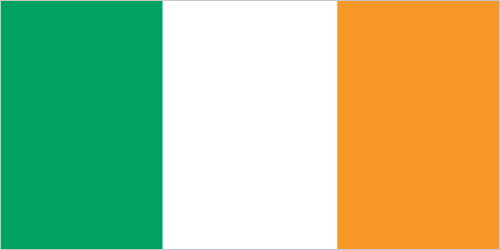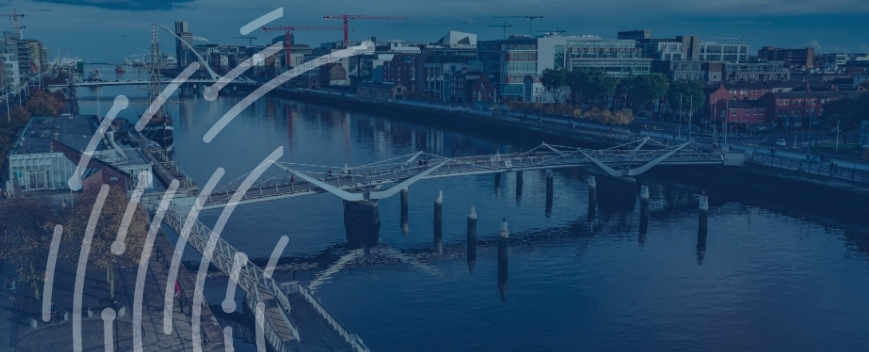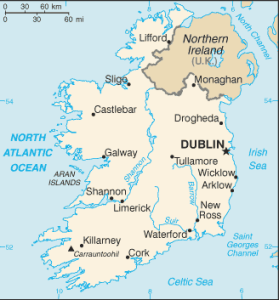Exporting to Ireland


Ireland Country Profile
Official Name (Local Language) Ireland
Capital Dublin
Population 4,952,473
Currency Euro
GDP $307.9 billion
Languages English; Irish
Telephone Dial In 353
Ireland Imports Profile
Imports ($m USD) 88,828
Number of Imports Products 4,356
Number of Imports Partners 226

Ireland Economic Statistics
Government Website | https://www.gov.ie/ |
| Sovereign Ratings | https://countryeconomy.com/ratings/ireland |
| Central Bank | Central Bank of Ireland |
| Currency USD Exchange Rate | 0.9214 |
| Unemployment Rate | 8% |
| Population below poverty line | 8.2% |
| Inflation Rate | 0.2% |
| Prime Lending Rate | 0.05% |
| GDP | $307.9 billion |
| GDP Pro Capita (PPP) | $69,400 |
| Currency Name | Euro |
| Currency Code | EUR |
| World Bank Classification | High Income |
| Competitive Industrial Performance | 23/138 |
| Corruption Perceptions Index | 19/180 |
| Ease of Doing Business | 23/190 |
| Enabling Trade Index | 20/136 |
Access trade, receivables and supply chain finance
We assist companies to access trade and receivables finance through our relationships with 270+ banks, funds and alternative finance houses.
Get StartedExporting to Ireland
Ireland receives variety of importable goods such as the refined petroleum which is valued at around $4.4 billion), packaged medicaments at $3.7 billion), followed by planes, helicopters and space craft with $2.4 billion. It also imports computers and data processing equipment, chemicals, textiles and clothing from its import partners.
These import commodities are sourced from primarily from Western countries such as the United Kingdom ($24 billion), the United States ($6.93 billion) and Germany ($6.4 billion) and some Asian countries like China ($3.8 billion).
Wood is also an important commodity that is imported by Ireland because the timber industry has been suffering from deforestation issues.
Exporting to Ireland: What is trade finance?
The Economic Complexity Index (ECI) has ranked this country’s export economy as the 35th largest one in the world. While Ireland’s trade and export industry is dominated by foreign companies, it is undeniable that exports form a large part of the national income.
Largely because of its large fertile pastures, Ireland’s main exported commodity are its agri-food and drinks, composed of dairy products, cattle and beef which makes up about 8.4% of the country’s total exports. It is estimated that around €9 billion worth of these items are exported annually.
In addition, Ireland also exports nitrogen heterocyclic compounds ($19 billion), scented mixtures ($7 billion) and computers at $5.4 billion. These export commodities are primarily targeted to the United States ($ 22.billion), the United Kingdom ($19 billion), Germany ($10 billion) and France ($8.4 billion).
The recession has been a big blow to Ireland’s economy which is evident in the food and beverage segment. While the value of Irish exports decreased by 12%, the presence of multinational companies such as Apple, Microsoft and Google, exports have been kept alive.
Chart Showing GDP Growth Compared to rest of world
GDP Composition for Ireland
Agriculture
1%
Barley, potatoes, wheat; beef, dairy products
Industry
41.3%
Pharmaceuticals, chemicals, computer hardware and software, food products, beverages and brewing; medical devices
Services
57.6%
Map
Top 5 Imports Partners
| Country | Trade | % Partner Share |
| United States | 19,593 | 22.06 |
| United Kingdom | 18,287 | 20.59 |
| France | 11,791 | 13.27 |
| Germany | 7,730 | 8.70 |
| China | 4,975 | 5.60 |
Top 5 Imports Products
| Export Product | Number |
| Aircraft nes of an unladen weight exceeding 15, | 20.8% |
| Human and animal blood; microbial cultures; tox | 5.2% |
| Petroleum oils, etc, (excl. crude); preparation | 3.4% |
| Other medicaments of mixed or unmixed products, | 3.2% |
| Parts and accessories of automatic data process | 3.0% |
Local Partners
- All Topics
- Ireland Trade Resources
- Export Finance and ECA Topics
- Local Conferences



















